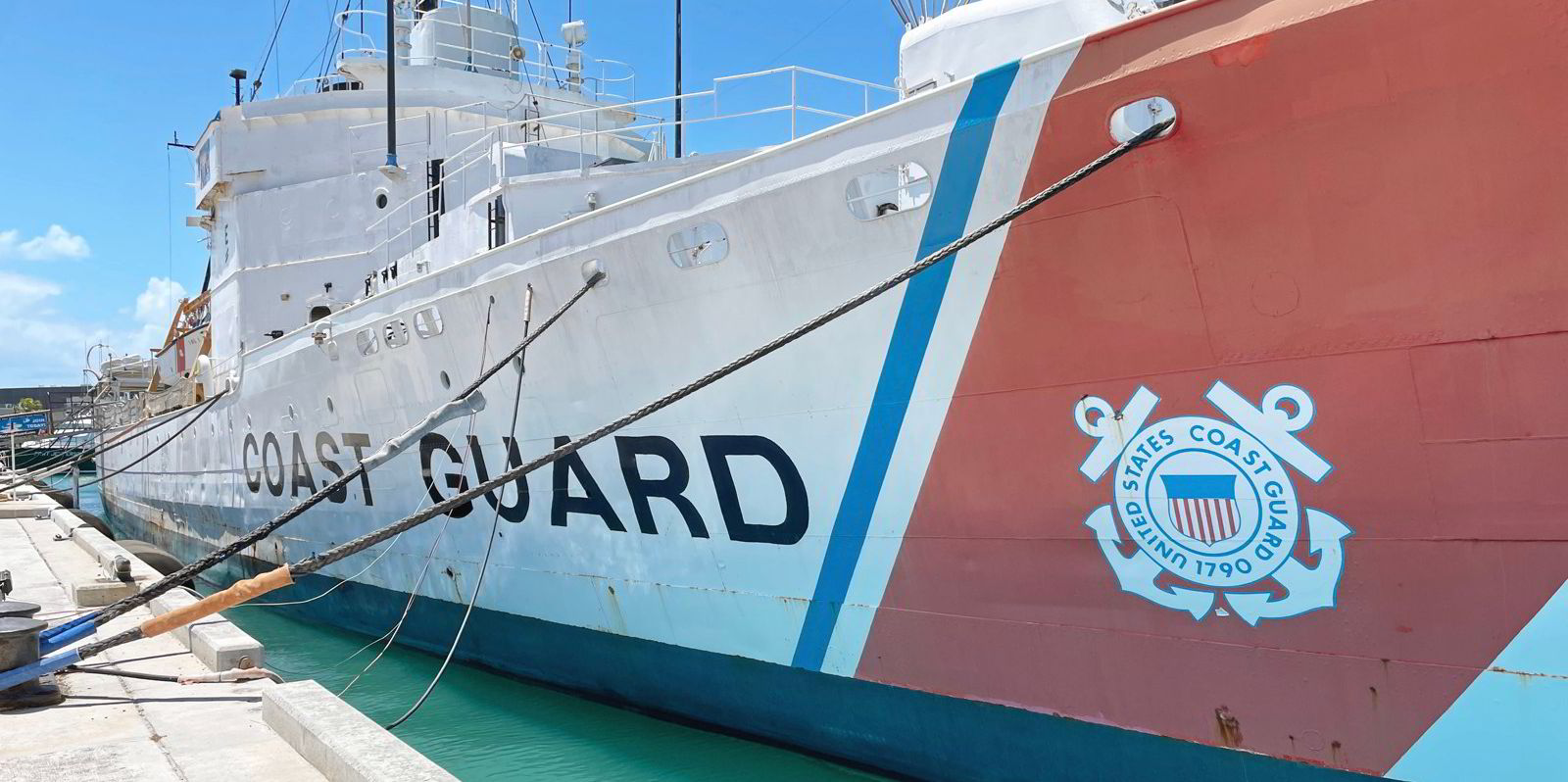When a ship’s officer gropes a cadet’s buttocks and grabs him from behind while simulating sex acts without his consent, is it sexual abuse?
That is a key question before a US Coast Guard judge who is reconsidering a decision that found that an AP Moller-Maersk chief mate “hazed” a deck cadet but that it did not rise to the level of sexual abuse or sexual molestation.
The case focuses on the merchant mariner credentials of Captain Mark Stinziano, whom Coast Guard prosecutors accused of abusing a midshipman who was on the 4,658-teu container ship Maersk Idaho (built 2000) as part of his year at sea as he studied at the US Merchant Marine Academy, among other allegations in the case. Stinziano denied all charges in the case.
At the time that the alleged events took place, between December 2014 and March 2015, the ship was in the Danish shipping giant’s US-flagged Maersk Line Ltd fleet. Stinziano worked as its chief mate.
As TradeWinds has reported, Coast Guard administrative law judge Michael Devine suspended rather than revoked Stinziano’s credentials last year, finding that he acted inappropriately but did not engage in sexual abuse under US laws governing seafarers at the time.
The judge found that Stinziano “hazed” the cadet, amounting to assault and battery.
Maersk fired Stinziano in August after he received a four-month suspension of his licence and eight months of probation.
Coast Guard prosecutors appealed the decision to vice commandant Steven Poulin, who said the judge may have erred in his interpretation of the law, according to a January decision. The decision in the appeal upheld the remainder of Devine’s decision, including his decision that there was insufficient evidence to conclude that Stinziano committed abusive sexual contact against the Maersk Idaho second mate Ryan Melogy and of sexual harassment against another cadet.
December 2014 to March 2015: Mark Stinziano, the chief mate on the Maersk Idaho, touches buttocks and simulates performing a sex
act on deck cadet, a US Merchant Marine Academy midshipman serving his year at sea.
April 2022: Coast Guard administrative law judge Michael Devine issues a four-month suspension of Stinziano’s licence and 12 months of probation, finding that these acts constituted assault and battery in the form of “hazing” and not abusive sexual contact. Other charges are rejected.
August 2022: TradeWinds reports that Maersk Line Ltd fired Stinziano as a result of the ruling.
January 2023: Coast Guard vice commandant Steven Poulin upholds much of Devine’s decision but remands the case to reconsider whether the acts against the deck cadet constitute abusive sexual contact.
October 2023: Administrative law judge George Jordan, assigned the case after Devine’s retirement, orders parties to submit briefs outlining their arguments on the abusive sexual contact question and on whether the Safer Seas Act applies to charges that were dismissed because of the statute of limitations.
In his decision to send the case back to a Coast Guard judge to reconsider Stinziano’s suspension, Poulin pointed to the US law on abusive sexual contact at sea, which prohibits knowingly engaging in “sexual contact” without permission.
The vice commandant also pointed to another law that defines sexual contact as intentional touching of areas of the body that include the buttocks or genitalia.
Devine had found Stinziano had acted as if the actions were jokes and did not qualify as sexual contact.
“The administrative law judge’s invocation of ‘a sexual act or an attempted sexual act’ along with ‘abusive sexual contact’ raises the suspicion that he interpreted [the sexual abuse laws] as requiring action or intent much closer to a sexual act than their plain language conveys,” Poulin wrote.
He said that the plain language of the law does not limit sexual abuse to situations where the defendant’s intent was to arouse or gratify his sexual desire but includes “an intent to abuse, humiliate, harass [and] degrade” the alleged victim.
Stinziano’s lawyer, KP Law’s William Hewig, declined to comment for this story, citing the pending litigation.
Before the vice commandant’s decision in the appeal, the Boston attorney had argued that Devine did consider this standard.
“The administrative law judge, after ‘considering all of the evidence as a whole and specifically including Deck Cadet 1’s testimony that he did not consider respondent to be acting with malice’, concluded that there was not ‘sufficient evidence to show respondent knowingly engaged in abusive sexual contact or a sexual act or an attempted sexual act’,” Hewig wrote in a July 2022 response to the appeal.
For Melogy, who reported the alleged abuse and harassment on the Maersk Idaho and who is now a maritime lawyer who represents seafarers in similar cases, the answer to whether the alleged groping and other actions against the deck cadet are abusive sexual contact is clear as day.
And he believes Devine’s decision is one of the reasons behind US lawmakers’ decision to pass the Safer Seas Act in December 2022, with new rules that aim to protect seafarers from sexual assault and harassment.

“It’s so obvious,” he told TradeWinds. “This is why Congress was horrified. He exposed the court to Congress.”
But for Melogy, Devine’s decision and the vice commandant’s remand are both emblematic of problems with the Coast Guard’s court system for dealing with such cases.
“This has not been a legitimate process,” he said. “This has been a coverup from the very beginning. There’s been layer after layer after layer of coverup.”
He argued the Coast Guard’s goal in the process has been to protect the agency and its administrative law judge system.
Melogy believes it would be better for such cases to go before an independent court system outside the agency.
The Coast Guard did not immediately respond to TradeWinds’ request for comment on the allegations.
By the time of the vice commandant’s decision to remand the case on that question, Devine had retired, and the case is now before Coast Guard judge George Jordan.
Devine’s December 2022 departure from the case came amid another change. The Safer Seas Act, passed the same month, gives the Coast Guard 10 years in the case of an alleged sexual assault and five years in the case of an alleged sexual harassment to launch suspension and revocation proceedings against a mariner.

That matters because Devine had thrown out sexual harassment allegations against Stinziano because they were time-barred.
And Coast Guard prosecutors believe that a finding of abusive sexual contact would constitute a material change in the case that would allow the law to apply to the case against Stinziano, according to an October account by Jordan of the two sides’ views.
Stinziano’s lawyers insisted to the judge that the new law does not apply because it was enacted after the hearing in the case and uses a different definition of “sexual harassment” than the one involved in the court proceedings, the document shows.
Before the Safer Seas Act, the definition of sexual harassment was based on company policy.
The Coast Guard’s administrative law judge docketing centre has not responded to TradeWinds’ request for briefs due from both sides in November.






